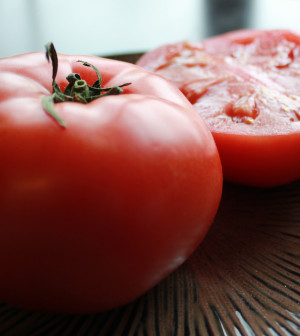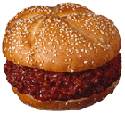- Could Your Grocery Store Meat Be Causing Recurring UTIs?
- Are You Making This Expensive Thermostat Error This Winter?
- Recognizing the Signs of Hypothyroidism
- 10 Strategies to Overcome Insomnia
- Could Artificial Sweeteners Be Aging the Brain Faster?
- Techniques for Soothing Your Nervous System
- Does the Water in Your House Smell Funny? Here’s Why
- Can a Daily Dose of Apple Cider Vinegar Actually Aid Weight Loss?
- 6 Health Beverages That Can Actually Spike Your Blood Sugar
- Treatment Options for Social Anxiety Disorder
Food Safety Tips for the Summer


Backyard barbeques, picnics and outdoor parties are common throughout the summer, but warm weather makes food safety a lot more challenging.
Bacteria in food can grow at a faster rate at temperatures between 40 degrees Fahrenheit (F) and 140 degrees F, according to Marjorie Davidson, education team leader at the U.S. Food and Drug Administration’s Center for Food Safety and Applied Nutrition. “Fortunately, there are a lot of steps consumers can take to keep family and friends from becoming ill,” noted Davidson in an FDA news release.
Among the ways people can prevent foodborne illnesses:
- Wash hands. Washing your hands thoroughly and frequently with soap and water for at least 20 seconds before and after eating and after using the bathroom is key to preventing the spread of germs. If you are outside and there is no bathroom, use bottled water and paper towels. It’s also a good idea to keep moist cleansing wipes on hand.
- Do not mix raw and cooked foods. Once a plate has been used to hold raw meat, poultry or seafood, don’t use it again for anything else until it has been washed well in hot, soapy water. Utensils and cooking surfaces should also be cleaned.
- Marinate in the refrigerator. Do not leave marinating foods out on the counter. Keep them cold in the refrigerator until they are ready to be cooked. Do not re-use marinade as a sauce. If necessary, keep a portion of the marinade that has not been used on raw meat, fish or poultry separate.
- Cook food well. Use a food thermometer to tell if food has been cooked thoroughly enough to kill any bacteria that may be present. Hamburgers should be cooked to 160 degrees F at the thickest part of the meat. Chicken should be cooked to an internal temperature of at least 165 degrees F. Any foods that are partially cooked in the microwave should be immediately placed on the grill or in the oven. Re-heated foods should also reach an internal temperature of 165 degrees F.
- Do not leave food out. It’s important to refrigerate or freeze cooked foods within two hours. If the outdoor temperature is above 90 degrees F, food should not be left out for more than one hour.
- Hot foods should stay hot. Any hot foods should be wrapped well or placed in an insulated container to ensure they stay at or above 140 degrees F.
- Cold foods should stay cold. Foods that should be refrigerated should be kept at or below 40 degrees F. Dishes like chicken salad or desserts can be placed on ice or in a container set into a bed of ice. As the ice melts, water should be drained and more ice should be added to ensure food remains cold.
More information
The U.S. Centers for Disease Control and Prevention provides more information on foodborne illness.
Source: HealthDay
Copyright © 2026 HealthDay. All rights reserved.










